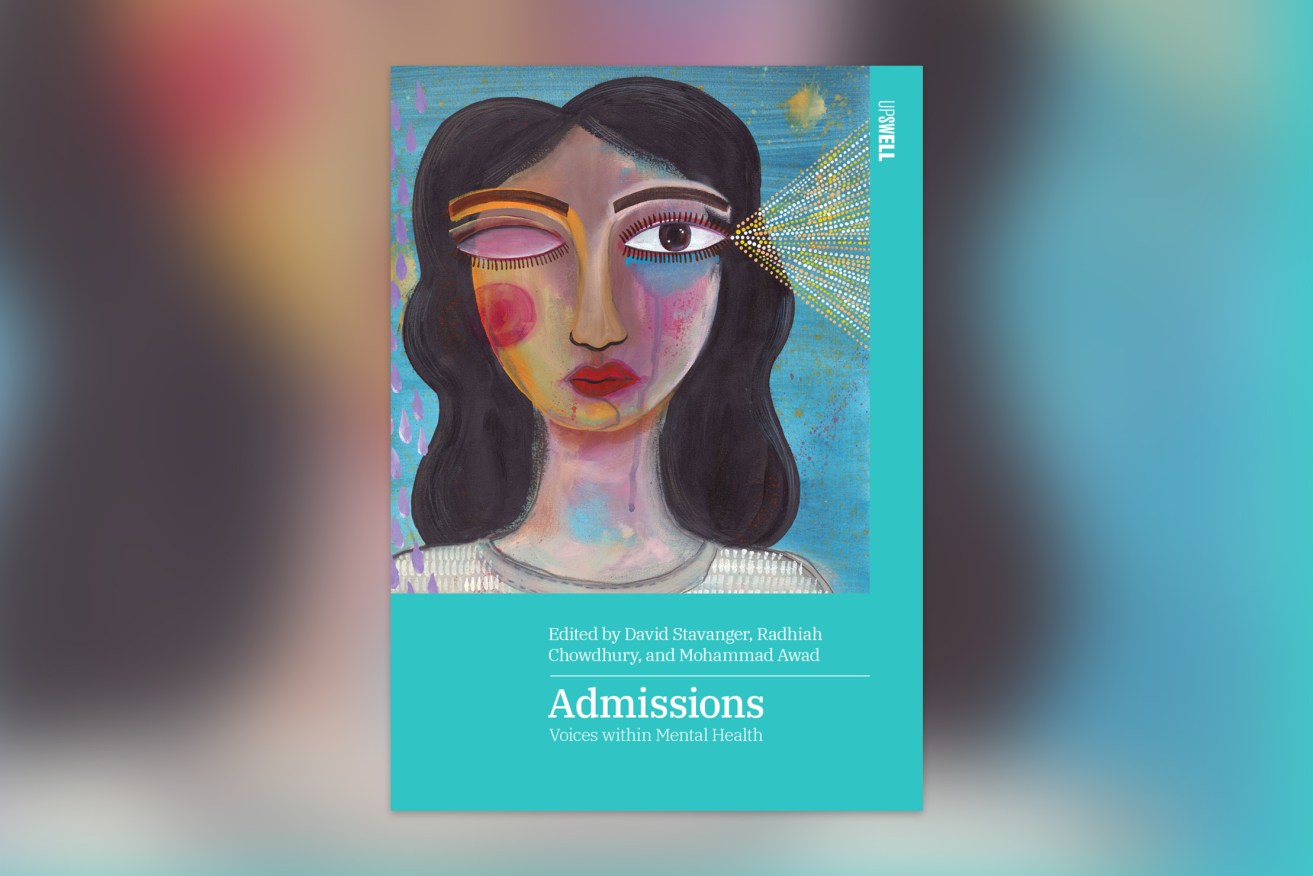Book review: Admissions
This new anthology offers unique insight into living with ill mental health through more than 100 stories, poems, essays and other works by contributors including Grace Tame, Fiona Wright and SA writers Ali Cobby Eckermann and Manal Younus.


In the first lines of this much-needed new anthology on living with mental illness, so aptly titled Admissions, Adelaide spoken-word artist Manal Younus writes:
Who is she
the one who shares your face
but not your vision
This is swiftly followed by an essay from multi-award-winning writer Fiona Wright, who tells us when she and her girlfriend first met, they discovered they share a condition commonly referred to as face blindness, and it was wonderful to recognise their own oddities in one another. But when they discover they also share mental illness, they’re not so sure the recognition is an affirmation – it would involve a new and intense kind of self-awareness.
Visually depicted in artist and author Amani Haydar’s stunning cover image of a woman split in two, these opening pieces project an inherent desire for a person living with mental illness to be seen by others, paired with a profound fear of seeing oneself. The dichotomous theme powerfully recurs over the next 282 pages of poetry, essays, sketches, fiction, visual art and comedy bits, as creatives from all over Australia gift us with their unique insight into living with ill mental health.
Goorie poet Brooke Scobie and Gunai poet Kirli Saunders connect our abused and ailing land to a deep disconnection to positive mental health, while Gomeroi hip-hop artist Kobie Dee writes about “Old scars with new ways to cope, / old ways smoke weed pills and coke”.
Closer to home, South Australian Yankunytjatjara poet Ali Cobby Eckermann points to the Stolen Generation and says, “hey Australia you wanna talk about ptsd”. The First Nations voices in this book are crucial to the discussion on societal mental health; if we, as a country, are going to look ourselves in the eye, we must accept the truth and consequences of colonial violence.
Similarly, we have to hold ourselves accountable when vocal advocate for sexual abuse survivors Grace Tame writes:
Tell us about being exploited
while we exploit you
because you are ours
We need you
we own you
you are sensational
Media both thrives on and is instigator of breakdown, and Tame has been a focus of media frenzy for more than a year. Her poem, like so many other pieces in the book, demands that we listen first; only then can we work against compliancy.
The varied approaches to the subjects of depression, anxiety and OCD (a small sample of labels for mental health conditions discussed in the book) are, as the back-cover blurb states, “an act of mad pride”. The solitary lived experience of each individual is urgent while the collective voice is nothing short of thrilling. This is being seen! they scream, sometimes in ALL CAPS; this is being heard!
Worth noting is that the contributors include Benjamin Frater and Mary Baker, two poets who have taken their own lives (Baker was only 15 when she died). Though their poems are overt and precious reminders of the all-too-human toll of mental illness, it would be wrong to say they are solely present as warnings. Rather they are additional points of recognition, proving that words endure.
And too clever to miss is the ordering of the pieces, reflected in the table of contents and author bios. Editors David Stavanger, Radhiah Chowdhury and Mohammad Awad have fought against the norm and presented the works in a backwards alphabetical order, Z through A (just as they’ve listed their own names on the book in the same fashion), so when flipping through pages to find a certain piece or to learn more about the author, this takes some getting used to. We’re accustomed to a more regimented way of organising and reading, and this radiant decision exemplifies what the book is attempting to do: encourage new ways of looking, listening, thinking and doing.
Brains are funny things. If they were all set to the same dial, there’d be no miscommunication and we’d all be as drab as the colour beige. Admissions is a double rainbow.
Admissions: Voices within Mental Health, eds David Stavanger, Radhiah Chowdhury, Mohammad Awad, is published by Upswell.
If this article has raised issues for you, a directory of South Australian mental health services can be found here on the Mental Health Coalition of SA website. LifeLine (13 11 14), Beyond Blue and headspace also offer mental health support.




